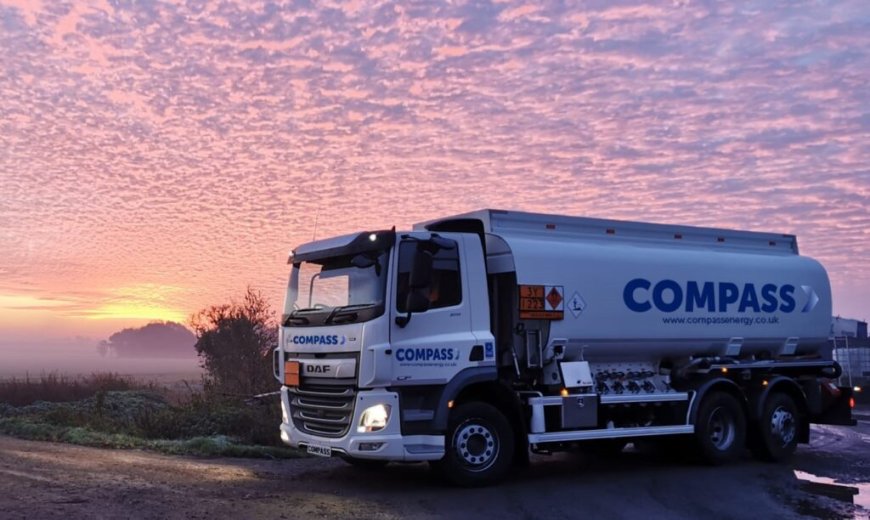Red Diesel Delivery: Powering Off-Road Industries Efficiently

Red diesel is a specialized type of diesel fuel that plays a crucial role in powering off-road machinery used across several industries, including agriculture, construction, and forestry. Marked with a distinctive red dye, this fuel is taxed at a lower rate compared to regular diesel, reflecting its use in equipment that does not operate on public roads. The delivery of red diesel is a critical service that ensures businesses have timely and reliable access to this cost-effective fuel, enabling smooth operations and significant cost savings.
What is Red Diesel and Why is it Used?
Red diesel is chemically similar to standard diesel but is dyed red to indicate that it benefits from a reduced fuel duty for off-road use. Its lower tax rate is designed to support industries with heavy fuel consumption on equipment such as tractors, harvesters, construction machinery, and generators. This makes it much more affordable than regular diesel. The strict regulations governing red diesel mean it can only be used in designated off-road machinery, and using it in on-road vehicles is illegal and subject to penalties. This distinction ensures that the tax relief is targeted and prevents misuse.
The Importance of Reliable Red Diesel Delivery
For industries relying heavily on machinery powered by red diesel, maintaining a steady fuel supply is essential. Interruptions in fuel delivery can lead to costly downtime, missed deadlines, and reduced productivity. Red diesel delivery services specialize in transporting bulk quantities of fuel directly to farms, construction sites, and other off-road operations. Many suppliers install on-site storage tanks to provide immediate access to fuel and reduce the risk of running out during critical periods. Timely and scheduled deliveries aligned with seasonal demands or project timelines help keep operations running smoothly without unexpected interruptions.
Selecting a Trusted Red Diesel Supplier
Choosing the right supplier for red diesel delivery involves several important factors. Reliability is the most critical, as businesses depend on punctual deliveries to avoid operational delays. The quality of the fuel is also vital, since contaminated or substandard fuel can cause damage to engines and machinery. While competitive pricing is always a consideration, many customers are willing to pay more for dependable service and flexible delivery options. Additional services such as emergency refueling, fuel testing, and management systems to monitor consumption can further enhance the value offered by suppliers. Compliance with legal regulations related to storage, delivery, and documentation also influences the choice of supplier.
Compliance and Legal Considerations
The use of red diesel is tightly regulated to prevent tax evasion and improper use. It is only permitted in non-road vehicles and machinery, and authorities regularly monitor compliance through inspections and audits. Businesses must keep accurate records of their red diesel purchases and usage to demonstrate lawful consumption. Suppliers are responsible for adhering to government guidelines regarding the handling and delivery of red diesel. Failure to comply with these rules can lead to severe financial penalties for both users and suppliers.
Challenges Facing Red Diesel Delivery
Delivering red diesel comes with challenges such as fluctuating global fuel prices, which impact budgeting for businesses. Logistics and transportation issues can also cause delays, particularly in remote areas. Environmental regulations are increasingly encouraging the use of cleaner fuel alternatives, forcing suppliers to expand their product offerings and adapt to evolving market demands. Managing these challenges while maintaining affordable and reliable delivery requires ongoing investment and strategic planning.
The Future of Red Diesel Delivery
As environmental concerns grow, the future of red diesel delivery is shifting towards more sustainable options. Biofuels and renewable diesel blends are being introduced to provide lower emissions while still qualifying for tax relief. Advances in technology are improving delivery efficiency through real-time tracking, automated scheduling, and better fuel management systems. These innovations help suppliers better serve customers and comply with regulations while reducing environmental impact.
Conclusion
Red diesel delivery is an indispensable service for industries that rely on off-road diesel-powered machinery. It ensures that businesses have access to affordable, high-quality fuel when they need it most. By focusing on reliable delivery, quality assurance, and regulatory compliance, red diesel suppliers support the productivity and efficiency of agriculture, construction, and other sectors. With sustainability and technology driving change, the delivery of red diesel is evolving to meet the needs of the future.








&srotate=0)
























